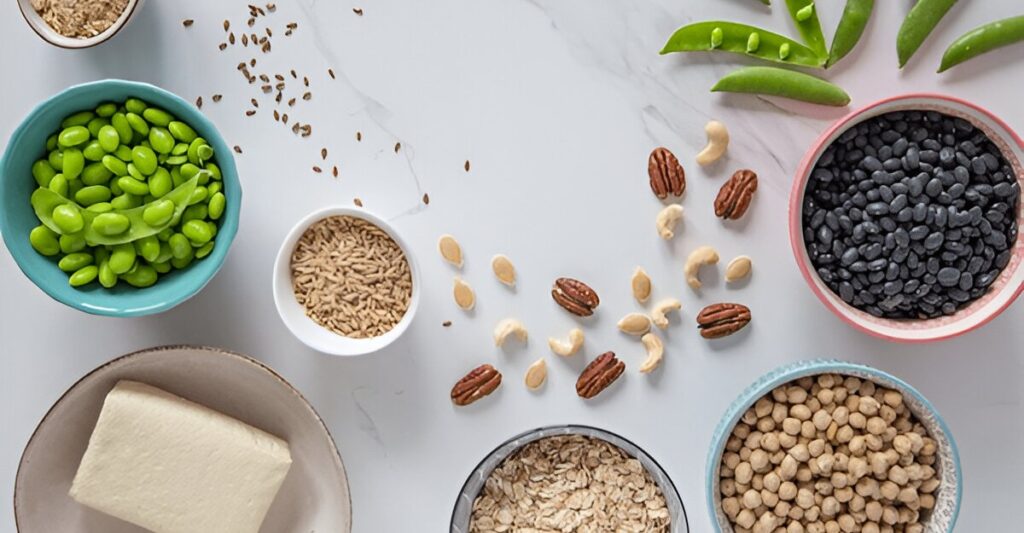Hunger hormones play a pivotal role in how we experience appetite, cravings, and even weight management. Ghrelin, often called the “hunger hormone,” signals when it’s time to eat, while leptin, the “satiety hormone,” tells your brain you’re full. Imbalances in these hormones can lead to overeating, constant cravings, or difficulty feeling satisfied. The good news? You can manage hunger hormones through diet with intentional food choices and lifestyle habits. This article explores practical, science-backed strategies to balance ghrelin and leptin for better appetite control.
Understanding Hunger Hormones: Ghrelin and Leptin
Before diving into dietary tips, let’s break down how ghrelin and leptin work. Ghrelin is produced in the stomach and rises before meals, triggering hunger. After eating, ghrelin levels drop, and leptin, released by fat cells, signals fullness to the brain. However, factors like stress, poor sleep, or an unbalanced diet can disrupt this system, leading to increased ghrelin (more hunger) or leptin resistance (feeling unsatisfied).
To manage hunger hormones effectively, your diet should focus on stabilizing blood sugar, reducing inflammation, and supporting hormonal balance. Here’s how to do it.
1. Prioritize Protein-Rich Foods
Protein is a powerhouse when it comes to managing hunger hormones. Studies show that high-protein meals reduce ghrelin levels more effectively than high-carb or high-fat meals, keeping you fuller for longer. Protein also supports leptin sensitivity, helping your brain register satiety.
How to Incorporate Protein:
- Breakfast: Start your day with eggs, Greek yogurt, or a protein smoothie with whey or plant-based protein powder.
- Meals: Include lean meats, fish, tofu, lentils, or beans in every meal.
- Snacks: Opt for protein-packed snacks like edamame, cottage cheese, or a handful of nuts.
Pro Tip: Aim for 20-30 grams of protein per meal to maximize hunger hormone regulation.
2. Embrace Fiber-Filled Foods
Fiber slows digestion, stabilizes blood sugar, and promotes a steady release of leptin, which helps manage hunger hormones. High-fiber foods also add bulk to meals, making you feel fuller without extra calories.
Best Fiber Sources:
- Vegetables: Broccoli, Brussels sprouts, and leafy greens.
- Fruits: Berries, apples, and pears (with the skin on).
- Whole Grains: Quinoa, oats, and brown rice.
- Legumes: Chickpeas, black beans, and lentils.
Pro Tip: Gradually increase fiber intake to avoid digestive discomfort, and pair with plenty of water.
3. Choose Healthy Fats for Hormonal Balance
Healthy fats are essential for leptin production and sensitivity. Omega-3 fatty acids, in particular, reduce inflammation and support brain signaling, helping your body respond to leptin more effectively.
Top Healthy Fat Sources:
- Fatty Fish: Salmon, mackerel, and sardines.
- Nuts and Seeds: Walnuts, chia seeds, and flaxseeds.
- Oils: Extra virgin olive oil and avocado oil.
- Avocado: Add to salads, smoothies, or toast.
Pro Tip: Avoid trans fats and excessive saturated fats, as they can increase inflammation and disrupt hunger hormone balance.
4. Limit Refined Carbs and Sugars
Refined carbs and sugars cause rapid blood sugar spikes and crashes, which can elevate ghrelin and reduce leptin sensitivity. This rollercoaster effect leaves you hungry soon after eating.
What to Avoid:
- Sugary drinks like soda and sweetened coffee.
- White bread, pastries, and processed snacks.
- High-sugar desserts like candy or cookies.
Healthier Alternatives:
- Swap refined grains for whole grains like farro or barley.
- Use natural sweeteners like stevia or small amounts of honey.
- Satisfy sweet cravings with fruit or dark chocolate (70% cocoa or higher).
5. Eat Mindfully and Regularly
Erratic eating patterns, like skipping meals or overeating, can throw hunger hormones out of whack. Eating at consistent times helps regulate ghrelin production, while mindful eating enhances leptin’s satiety signals.
Tips for Mindful Eating:
- Eat slowly and chew thoroughly to give your brain time to register fullness.
- Avoid distractions like screens during meals.
- Stick to a regular meal schedule, such as three meals and one or two snacks daily.
6. Support Hunger Hormones with Lifestyle Habits
Diet is crucial, but other factors influence hunger hormones. Poor sleep increases ghrelin and decreases leptin, making you hungrier. Stress elevates cortisol, which can interfere with leptin signaling. To optimize your diet’s impact:
- Aim for 7-9 hours of quality sleep nightly.
- Practice stress management through meditation, yoga, or deep breathing.
- Stay active with regular exercise, which improves leptin sensitivity.
Sample Meal Plan to Manage Hunger Hormones
Here’s a one-day meal plan to put these tips into action:
- Breakfast: Greek yogurt with mixed berries, chia seeds, and a drizzle of honey.
- Snack: A handful of almonds and an apple.
- Lunch: Grilled salmon with quinoa, roasted broccoli, and avocado slices.
- Snack: Hummus with carrot and cucumber sticks.
- Dinner: Stir-fried tofu with brown rice, spinach, and olive oil dressing.
Final Thoughts
Managing hunger hormones through diet is a powerful way to take control of your appetite and support overall health. By prioritizing protein, fiber, and healthy fats, limiting refined carbs, and adopting mindful eating habits, you can balance ghrelin and leptin for lasting satiety. Combine these dietary strategies with good sleep, stress management, and regular exercise for the best results. Start small, experiment with these tips, and watch how your body responds to a hormone-friendly diet.


